1 Art
“This is a complicated artistic time to live in.”
That’s what Stephen Colbert had to say after a labyrinth explanation from Paola Antonelli, senior curator of architecture and design at MoMA, on whether the state of our art is modern, post-modern, or pre-future. I loved every minute of this interview, but the best part may have been what happens when 40, 000 bees conspire to create a honeycomb vase in an act of “slow prototype” design. (Explore)
Bees making art is one thing. These underwater sculptures created from trash discarded into our oceans are something else. I mean that. They are something else. These works by the artists at Forelane 6 Studio from plastic bottles, clothing, even furniture, seem to suspend time as “this weightless and slow aesthetic contradicts the usual way objects are consumed and disposed of in an inconsiderate speed.” (Visual News)
2 News
There are those among us, easily identified by their easily identifiable traits, if you know what to look for, who would have us believe that we’ve lost a generation to the love of poetry. That teenagers aren’t interested in poetry. That the young people of today have turned their back on centuries of poetic literature. To use a word I heard a lot when I was a teenager and somebody in my house was making stuff up, Hogwash. Teenagers are crazy about poetry. You just have to talk to the right ones. Online venues Movellas and Wattpad are full of teens writing and reading poetry. One teen who writes on Movellas said, “I suppose I like the fact that it seems to distill experiences and emotions; to communicate ideas in a powerful, yet economic way.” Yeah, a teenager said that. (Guardian Books)
And some teens are taking their poetry offline and competing in the Poetry Out Loud contests. (Wyoming News)
Gosh. If I’d have been working out my teenage angst writing poetry 35 years ago instead of staring at the ceiling and listening to the Moody Blues in my bedroom, maybe by now, oh, I don’t know. Maybe I’d be writing for a poetry website.
This just in. It has nothing to do with teenage poetry, but I do know some teenagers who are interested in anything involving brackets. Have you picked up your bracket yet for this year’s Tournament of Books? I have no idea what it is, but it appears to involve books and competition. A healthy combination, to my mind. Perhaps you could discuss it amongst yourselves. (The Morning News)
3 Places
“What would you do for poetry?” Karen Swallow Prior, in an article that is making its way across the poetry community, poignantly shares the risks (of literal life and death) that women in rural Afghanistan take in order to write, read, and share poetic verse. It’s worth the risk, Prior says, because it gives the women voice. “In writing and reciting their poems, these women give voice to the fears and injustices—and to the hopes and dreams–that define their lives.” She tells of one woman, sharing verse with her secret cell phone call-in group, who understood the risks and took them bravely:
“Record my voice, ” she instructed the other women who’d called in, “so that when I get killed at least you’ll have something of me.” (Her.Meneutics)
If you ever wonder, this is it. This is why poetry matters.
4 Poetry at Work
Call this the Top 10 Poetic Picks I’m-Not-Sure-I-Understand-the-Article Edition. I’ve read this clip a few times about a new collection of “corporate poetry” written by people “who work within Britain’s corporate sector. This includes surgeons, dentists, CEOs, solicitors and bankers.” The article devolves into some sort of investigation into tax evasion schemes. It’s possible, I suppose, that some of the poems were written by tax-avoidant professionals, or as one commenter suggested, publication of the book itself is part of such a scheme. Which, we could say, also represents Poetry at Work, in a peculiar sort of way. One that we do not necessarily advise. (London Review of Books)
While the publisher promotes this book as “unorthodox” in that it includes poems written by working professionals, Scott Anderson suggests that companies can benefit from hiring poets to help them see through a different lens. Perhaps hiring a poet become more “orthodox.”
You will get someone with different, yet complementary attributes to those your Firm already has on board. A poet will certainly be passionate, articulate, and interested in engaging in constructive debate as well as building partnerships with your portfolio companies. (The Green Skeptic)
5 Creativity
Since the dawn of Facebook, Twitter, and Instagram, it seems everyone is a food photographer. Look around any restaurant and you’ll see a dozen patrons suspending cell phones over their plates, or kneeling at the edge of the table to get that cool eye-level view of the steaming plate. (Could I make a request? A small one. Do not include your fork in the picture if you’ve already had it in and out of your mouth. Thank you please.) At this moment in my Facebook news feed I have photos from friends of an onion, Marshmallow Peeps, cheesecake, a baked potato, four items wrapped in bacon, and one blue ticket. Okay, the blue ticket is not food. But it has awakened my curiosity like the subtle aroma of black tea with a hint of chocolate and caramel on a Saturday morning.
What I really want is this: instead of amateur photographers with Instagram and an iPhone, I want poets around those tables with their Moleskines writing poems to, for, and about their food–like these food poems featured by Madeleine Crum. The best food poems, she says, “have layers of complexity that are slowly revealed, like eating a perfectly assembled sandwich or masterfully mixed drink.” (HuffPost Taste)
6 Write-It
Ezra Pound had a few things to say about what not to do when writing verse, particularly by way of what would make the strongest images. So important was the image, he said that “It is better to present one Image in a lifetime than to produce voluminous works, ” leading me to wonder what one single image would seem sufficient for me to never need say anything else in my life.
The folks at Poetry Foundation have gathered up a collection of updates to Pound’s directive which seems fitting considering his thought that such rules should not be treated as dogma, but as “the result of long contemplation.” The way I see it, what is worth long contemplation one time is worth long recontemplation another. Take a look at these updated lists of Don’ts. And then, just don’t. (Poetry Foundation)
7 Poems
In her article explaining her poem “The Flood, ” Molly Brodak writes that “Some research recently revealed that it is not too much information that is stressful or overwhelming, it’s too much information that seems to be meaningful.” She goes on to describe a walk in the woods which, though it is full to the treetops of input, it is considered relaxing, because “the input is not meaningful, ” thus we can bypass the stimulation. “Millions and millions of leaves are not relevant details; the brain glazes over them. It’s a wash of ok-ness. A flood is an event that would make the landscape overwhelmingly meaningful.” Her poem speaks of the effects of such a flood of input and stimuli, and suggests in the end that after the flood, even “Noah gets drunk and lies naked in his tent for a while.”
The Flood
Panic, because suddenly everything signifies,
a kind of net of sunlight, pulling all directions at once;
Read the rest of “The Flood” and Brodak’s article. (Poetry Society of America)
We are spending some time ruminating over the pantoum this month at Tweetspeak. We featured this great piece in Every Day Poems this week to get things going:
Another Lullaby for Insomniacs
Sleep, she will not linger:
She turns her moon-cold shoulder.
With no ring on her finger,
You cannot hope to hold her.
Read the rest of Another Lulluby for Insomniacs by A. E. Stallings and if you’re not already familiar with the pantoum form, see if you can’t unravel the pattern.
8 People
Many artists commit sacrifices in order to make their art–sometimes they sacrifice only of themselves, sometimes unwittingly of others. In this interview with Bill Moyers, Martin Espada talks about the sacrifices, and the poignant story behind his poem “The Poet’s Son Watches His Father Leave for Another Gig.” (Bill Moyers)
If you didn’t just jump in the article right here past the Espada interview, you might think I’ve been not-so-subtly making the case today that poetry matters. I’m feeling it this week, for my own personal reasons: poetry matters. And places that make poetry matter too.
In a recent interview, Billy Collins gave a Big Important Answer to why poetry matters–all about reverberations through the history of emotion, the history of the human heart. But when asked why he writes poetry? It was much more simple than that: “I write because it’s a habitual pleasure.” (U-T San Diego)
Well, there you go. A habitual pleasure. I told you so: poetry matters.
9 Books
Ignore the writer’s comment about poetry being a “ghetto” read only by poets and coerced middle school students (he means well). Just consider the idea that Maurice Sendak’s work, which found its biggest audience with children but could as well have been intended for adults, might be thought of as “graphic poems.” I like that. Especially with the posthumous release of My Brother’s Book. This story is tender, believed to be an elegy to his brother, Jack. In his review, Bruce Handy says that “where Sendak’s most famous books are about entering and waking from dreams, this one begins with its feet set firmly in dreamland and only grows dreamier—full of strange, quintessentially Sendakian transformations.” In fact, the closing lines end with a dream:
And Jack slept safe,
Enfolded in his brother’s arms.
And Guy whispered, ‘Good night
And you will dream of me.’
I’m writing this article on World Read Aloud Day. I think I would like someone to read this book to me. (Vanity Fair)
10 Sound n Motion
One of my favorite playlists is a 10-hour Patti Smith marathon–not all Patti Smith by any means, but a collection of all of the music referenced in her memoir. Since she’s been playing all night, let me leave off with this clip of her cover of Nirvana’s “Smells Like Teen Spirit.” (Galley Cat, Open Culture)
Cover photo by Manny Valdes. Creative Commons license via Flickr. Article photos by Claire Burge. Used with permission.
______________________________
Buy a year of Every Day Poems, just $5.99 — Read a poem a day, become a better poet. In March we’re exploring the theme The Pantoum.
- Earth Song Poem Featured on The Slowdown!—Birds in Home Depot - February 7, 2023
- The Rapping in the Attic—Happy Holidays Fun Video! - December 21, 2022
- Video: Earth Song: A Nature Poems Experience—Enchanting! - December 6, 2022
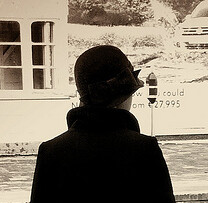
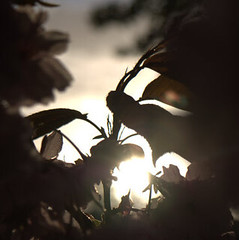
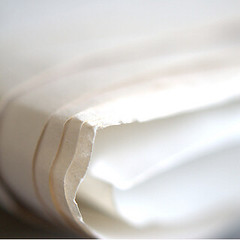

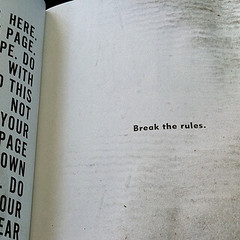
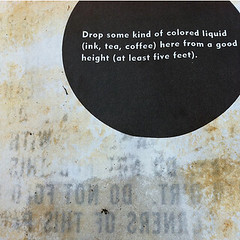





Maureen Doallas says
Great stuff. Who doesn’t like the Colbert piece?!
I prepared a few weeks ago a post on that Moyers talk with Espada, I liked it so much. It’s in my scheduled queue.
Patti Smith is going to be publishing another book. I’m looking forward to that.
Scott Edward Anderson says
Thanks for the mention of my Green Skeptic post on hiring a poet!
In your exploration of the pantoum, I thought you might be interested in my “A Pantoum for Aceh”: http://seapoetry.wordpress.com/2011/04/21/on-my-poem-a-pantoum-for-aceh/
L. L. Barkat says
that tea sounds heavenly. I would like a lazy Saturday morning to enjoy it.
And I seriously loved that Colbert video. Now I would like a vase made by bees 🙂
Melody Harrison Hanson says
I’d love to offer my photography for your beautiful site, for the name recognition only. I’m not trying to make money only collaborate. Email me if there’s interest. Melody